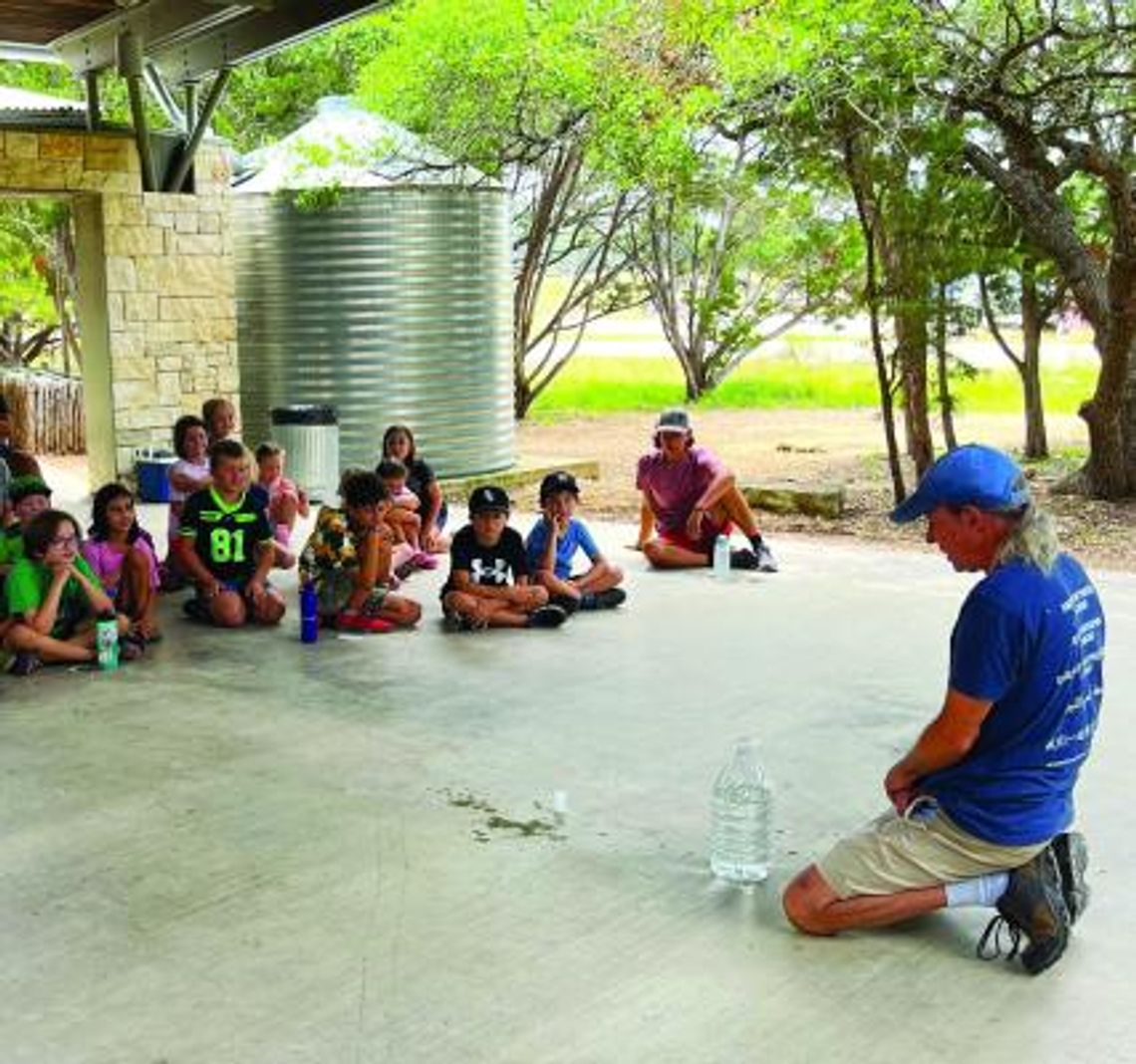Space Rangers was the theme at last week’s Blue Hole Nature Camp, so the Dark Sky Committee supplied a little night sky history and rocket ship science.
Every summer, Blue Hole Regional Park hosts 10 oneweek camps for 40 kids, ages 6-12. The camp is fully enrolled for this summer, its seventh year.
“Each week has a different theme,” said Camp Supervisor Rachel Littleton. “So far, we have had Outdoor Living Skills, Fun Five Senses and now, Space Rangers.”
As last Wednesday’s guest speakers at the open-air Blue Hole Pavilion, Wimberley Valley Dark Sky Committee members Jamie Kinscherff and Martha Pinto talked to a very attentive group about why Wimberley has an official International Dark Sky Association designation as an International Dark Sky Community. Next, they quizzed the kids on space history and geography. The young group quickly went from politely attentive to quite responsive; sometimes very vocally.
“I was a bit surprised,” said Kinscherff, the environmental studies teacher at the Blanco River Academy. “Many of the kids already knew Wimberley is a Dark Sky Community. Some had a pretty good idea what that meant. Most knew what light pollution is and a few knew that it is detrimental to us humans and also to the wildlife we live with.”
Asked space-related questions such as the names of the planets or what person first walked on the moon, almost all of the young people waved their hands to be called on.
“The kids were very involved,” said Pinto. “My career was as a teacher and counselor, so it’s fun just engaging their imagination and their young enthusiasm.”
The clear hit of the day, a bit of rocket science, involved nothing more than an old plastic 35 mm film canister, a few tablets of Alka-Seltzer and a little water.
“I told them, in more scientific terms, that it is hydrogen and oxygen – that’s what water is – and sodium bicarbonate, which is what Alka-Seltzer is,” said Kinscherff.
Mixing the water with sodium bicarbonate, Kinscherff first demonstrated how it could either blast, or just burp, the cap off the film canister. The “launch” could be a dud, or a high-flying success, depending on the mixture. After each attempt, Kinscherff let the kids decide on how to change the propulsive fuel proportions of their mini-rocket on the next try, based on the knowledge they had learned from each previous experiment. Soon they had the capsule – well, cap – blasting clear to the pavilion ceiling.
“The experiment teaches them about scientific prediction, and basic words of experimentation, such as constants and variables,” Kinscherff said.
For future camp information, search Blue Hole Nature Camp at cityofwimberley. com.







